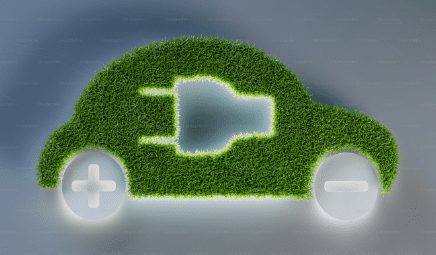In recent years, many people in the UK have been excited about switching to electric vehicles (EVs) to help the environment. However, it seems that this electric revolution is hitting a few bumps in the road. The costs associated with owning and using electric cars have risen significantly, making some drivers think twice before making the switch. Let’s dive into the details and see what’s going on!
The Pricey Journey to Green
Electric vehicles were once seen as a cost-effective way to travel. But now, running one can actually be more expensive than driving a petrol or diesel car! A recent study showed that a round trip from London to Cornwall, which is quite a popular journey, costs nearly double for EVs compared to traditional cars. Using rapid chargers for that trip can set you back about £148 if you’re in an electric car. In comparison, a diesel car would cost just £77, and a petrol car would cost around £89.

This significant difference in costs is raising eyebrows. Why is it so expensive to run an electric vehicle? One of the main reasons is the rising prices at charging stations. As more people are trying to charge their electric cars, the costs at roadside chargers have skyrocketed. Drivers who once thought they would save money by going green are now facing hefty bills every time they charge their vehicles.
How Much Does It Really Cost?
When we break it down, the numbers paint a clear picture. On average, driving an electric car can cost more than 24 pence per mile. In comparison, diesel cars cost about 12.5 pence per mile, while petrol cars cost around 14.5 pence per mile. This means that for every mile you drive an electric car, you’re paying almost twice as much as you would if you were in a diesel vehicle!
It’s essential to understand these figures, especially for families and individuals who rely on their cars for daily activities, such as commuting to work or taking kids to school. The higher costs can be a significant burden, especially for those who are already managing tight budgets.
The Environmental Trade-Off
Many people choose electric cars because they want to help the environment. EVs produce fewer emissions than traditional vehicles, which is great for reducing pollution. But the question arises: Is it worth paying so much more to drive electric? Some drivers are now feeling that they are being squeezed between wanting to be environmentally friendly and needing to stick to their budgets.
For instance, imagine a family planning a road trip from London to Cornwall. They might have chosen an electric car to reduce their carbon footprint. However, after seeing the costs of charging, they might decide to take their diesel or petrol car instead. This decision could hurt the environment, which is precisely what many electric car advocates want to avoid.
A Slowdown in Electric Vehicle Adoption
As these costs become more apparent, fewer drivers are making the switch to electric vehicles. The UK has seen a drop in the number of people switching from petrol or diesel cars to electric ones. The high costs at charging stations and the expensive upkeep of electric cars are making it less attractive for new buyers.
Some potential buyers are also worried about the availability of charging stations. While many areas have charging points, they may not be as accessible as petrol stations. This means that drivers may face long waits to charge their cars, adding to their frustrations.

What Can Be Done?
So, what’s the solution? To encourage more people to switch to electric vehicles, there needs to be a balance between cost and accessibility. This could include:
- Reducing Charging Costs: The government and charging companies could work together to lower the prices at charging stations. This would make it more affordable for people to charge their cars and encourage more drivers to go electric.
- Incentives for EV Buyers: More incentives, like tax breaks or grants for buying electric vehicles, could help. These financial boosts could make it easier for families to make the switch.
- More Charging Stations: Expanding the number of charging stations can make it easier for drivers to find places to charge their vehicles. The more accessible charging stations are, the more likely people are to consider buying electric cars.
Conclusion: A Path Forward
The dream of a greener future with electric vehicles is still alive, but the road ahead is challenging. While it’s great that people want to make environmentally friendly choices, the costs associated with electric cars can be a significant barrier. By addressing these financial hurdles, the UK can encourage more drivers to switch to electric, creating a cleaner environment for everyone.
In the end, whether you choose an electric car or stick with petrol or diesel, it’s essential to weigh the costs and benefits carefully. The future of driving could be electric, but it needs to be more affordable and accessible for everyone to join the journey.








